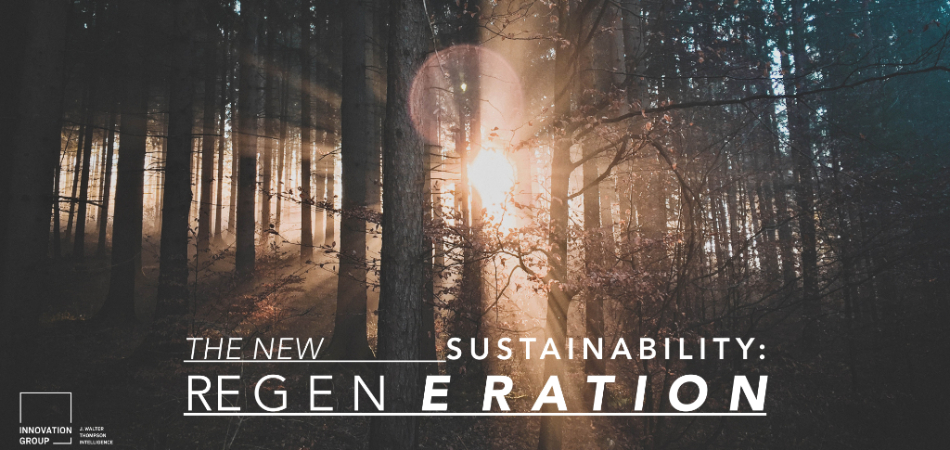
Vienna launches ‘The Blue Danube’ Waltz into space
Drawing inspiration from the Voyager Golden Records, the campaign celebrates Johann Strauss II’s 200th Birthday.
The latest report from J Walter Thompson’s Innovation Group, explores the urgent need for brands to adopt regenerative, not just sustainable, business practices.


The New Sustainability: Regeneration, the latest report from J Walter Thompson’s Innovation Group, explores the urgent need for brands to adopt regenerative, not just sustainable, business practices.
Doing less harm is no longer enough. The future of sustainability is in regeneration, doing business in a way that restores our fragile ecology, rejuvenates communities and makes a net positive difference in people’s lives.
Why the urgency? 2018 has seen record heatwaves on four continents, wildfires in the Arctic Circle and perilous water shortages. Despite 195 countries signing up to the Paris Agreement to reduce carbon emissions, global use of resources continues to exceed planetary boundaries. As governments struggle to keep nations on track, businesses and brands have an opportunity to play a decisive role in creating a sustainable future.
But what was perhaps once seen as a burden or a box-ticking exercise now holds the key to innovation and revenue potential. According to conservative estimates, a new sustainable economy could be worth $12 trillion and create 380 million jobs. It’s potentially a win on many fronts for brands, which can drive efficiencies and minimise exposure to risks while aligning with the values of many of their stakeholders.
Consumers are already operating from a sustainability mindset, even if they struggle to make it a routine lifestyle. They are increasing the pressure on brands to make it easier for them to do so, calling for greater transparency and pushing for more sustainable options.
To understand attitudes and behaviours across countries, the Innovation Group commissioned an original survey of just over 2,000 adults in the United Kingdom, the United States, Australia and China. The study was conducted by SONAR™, J. Walter Thompson’s proprietary research unit. The team also interviewed more than thirty experts, influencers and thought leaders in the sustainability space.
AUTHOR
Marie Stafford, European Director, the Innovation Group
Sarah Tilley, Consultant, the Innovation Group
Ella Britton, Associate Consultant, the Innovation Group
Key take outs:
THE NEW SUSTAINABILITY: REGENERATION
Visit JWT’s showcase to read the full report
CONTACT
Jo Doyle, PR & Marketing Manager, JWT London, [email protected]
Marie loves to tell inspiring stories about the future and how people and the world are is changing. As Global co-lead for VML Intelligence, she regularly shares future visions with international audiences, translating trends into compelling insights and actionable opportunities. She has been widely quoted as a futures expert in outlets such as the Financial Times and the New York Times among others. She writes regularly for VML Intelligence on the intersection between culture, consumer behaviour and innovation. She has authored award-winning research on themes from inclusion to emerging technology and co-leads the annual VML Future 100 trends report, now in its tenth year.
Looks like you need to create a Creativebrief account to perform this action.
Create account Sign inLooks like you need to create a Creativebrief account to perform this action.
Create account Sign in